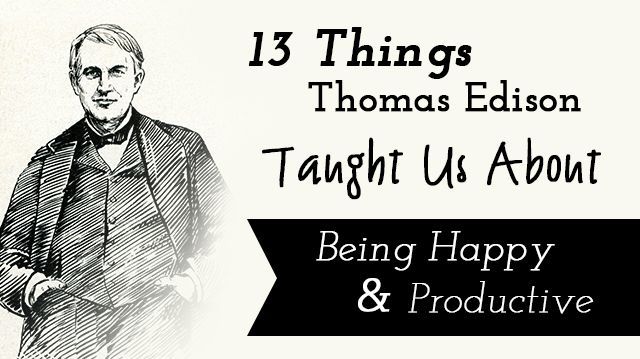
There are a lot of unknowns in life, yet one thing is for certain, our time on Earth is fairly limited and how we spend that time most certainly matters. Being productive and achieving a lifetime of happiness are goals that anyone can accomplish.
Think of it this way — if you live to the age of 80, you will have lived approximately 420,480,000 minutes. What will you have done with all that time? When you look back, will you feel as though you have lived a productive life?
When it comes to the present and future, we must look to the past — and within the past, there were few people as productive and inspiring as Thomas Edison. What can his past accomplishments teach us about being happy and more productive in our everyday lives?
13 lessons we can learn from Thomas Edison about productivity and overall happiness
It’s hard to imagine packing all of Edison’s accomplishments into one lifespan. He was an extraordinary man, and although he was remarkable, he was still only human — just like you and me. He displayed the perfect cocktail of motivation, passion, ingenuity, and perseverance, passing down these thought-provoking lessons.
Results develop from hard work
“The three great essentials to achieve anything worthwhile are: hard work, stick-to-itiveness, and common sense.”
Time and time again, Thomas Edison was quoted in regards to hard work. Productivity is not based solely on talent or skill, and Edison was a firm believer in this. His perseverance and character traits are what made him so successful, not some undiscovered “genius” gene. As Edison said, “There is no substitute for hard work.”
Sure, there may be people who can paint better than you or solve complex math equations that you can’t even imagine attempting, but all of that is irrelevant. If you are willing to work hard, that is when everything begins to fall into place. Work towards your goals and don’t let obstacles stand in your way.

Naps aren’t just for babies and grandmas
“Personally, I enjoy working about 18 hours a day. Besides the short catnaps I take each day, I average about four to five hours of sleep per night…”
As you read through all the online content circulating these days, you probably encounter quite a bit on the importance of sleep. We all know that sleep is important, and if we don’t get enough, we most certainly feel it. Edison was known to work well into the night, sometimes working for days straight. His secret?
Well, he wasn’t a robot — he just loved a good nap. He was known to sleep in all kinds of unexpected places, allowing for greater flexibility. When he worked for long periods of time, it was power naps that recharged his battery. Whether he took a power nap in one of his famous cots or outdoors in the grass, these short periods of sleep counterbalanced his intense workload.
More and more research has developed regarding the benefits of napping and productivity, and certain employers have taken notice — considering lack of sleep costs American companies an average of $63 billion annually. In fact, companies such as Google encourage their employees to take a beneficial nap, helping them face the afternoon with greater intensity, reducing lost productivity.
Related: Ask Your Boss For Scheduled Nap Time — You’ll Both Benefit

Failures are successes in disguise
“I have not failed. I’ve just found 10,000 ways that won’t work.”
Edison was known for his positive attitude, understanding that the most influential aspect of success, was the right attitude towards failure. Some experience failure and retreat, shying away from their original concept or idea. Edison viewed failures as true opportunities — once you fail, you have instantly created a valuable learning experience.
When you’re an infant, you know nothing about the world, and with a child’s fearless nature, mistakes are made and lessons are learned. As adults, this concept still holds true — learn from your failures and grow, nothing is a waste of time. If you focus less on your failures and more on what you can take from them, you will find that productivity becomes much more natural.

Don’t give up — perseverance is everything
“Our greatest weakness lies in giving up. The most certain way to succeed is always to try just one more time…”
How often have you started something, only to give up after the first major hurdle? Edison was known for his perseverance; if he’d given up, his inventions would not have had the same impact throughout history. He claims that he tried thousands of filaments before finding a reliable option for his electric light bulbs.
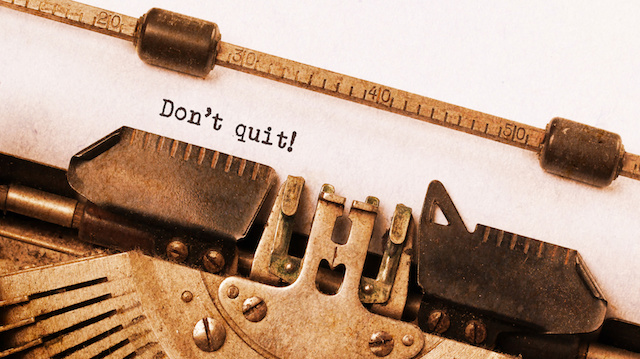
Encourage creativity by working with others
“If I could solve all the problems myself, I would.”
Edison said this when asked why he had a team of 21 assistants. Thomas Edison thrived on the company of others, surrounding himself with talented men who were willing to express themselves. This method was perhaps one of Edison’s greatest inventions. He designed a laboratory with large open rooms, allowing his assistants to work the hours they pleased, interacting and sharing ideas. He understood that each individual added their own personal value.
As these men would wonder, talk, and work, they had the freedom to explore their ideas and influence others. You know what they say — two heads are better than one, so 10 heads are even better. If you have a group of like-minded, hardworking individuals who are eager to make an impact, don’t fly solo, encourage each other to create and develop.

But don’t be shy to think alone
“The best thinking has been done in solitude, the worst has been done in turmoil.”
Have you ever sat in total solitude, only to find that some of your best ideas come flooding in? Expose yourself to less stimuli and focus on strengthening your ideas, and all the possibilities that come with those concepts. When you remove yourself from chaos and outside influences, that is when creativity begins to solve your most challenging problems.

See the beauty (and benefit) of taking notes
“Vision without execution is just hallucination.”
Edison wrote millions of pages which have been found and preserved, showcasing anything from research to to-do lists. Today, we have the world at our fingertips. Through software and online resources, old-school note taking is often viewed as a thing of the past; however, it’s the perfect way to visualize your goals.
Whether you personally like to handwrite your notes or type them in an organized fashion, write your thoughts and ideas down. For starters, when you physically write new concepts down, you free your mind to focus on the next task at hand. As you visualize your ideas on a piece of paper or screen, all in one place, new ideas develop and you are able to efficiently execute each task.

Set goals and expectations
“If we did all the things we are capable of, we would literally astound ourselves.”
If you do not personally push yourself to achieve bigger and better things, no one else will. Many obstacles in life seem as though they’re a never-ending road and to start that journey would be next to impossible. As mentioned, Edison was a big fan of lists and when viewed today, my, my, were they ever ambitious.
He believed that we are all capable of incredible things and if we truly pushed the envelope, we’d be shocked at what we could accomplish. As you set goals and deadlines, you push yourself into a more productive mindset. Encourage yourself to do more and achieve more, as you meet your own expectations.

Do what you love, you’ll never work a day in your life
“I never did a day’s work in my life. It was all fun…”
For many, a career is a means to pay the bills, and although that can bring a sense of accomplishment and joy, it’s more of a “chore” than a passion. Edison’s loved ones often claimed that he was a workaholic, but he didn’t seem to view it that way. For him, he loved inventing — it brought him meaning, fulfillment, and joy.
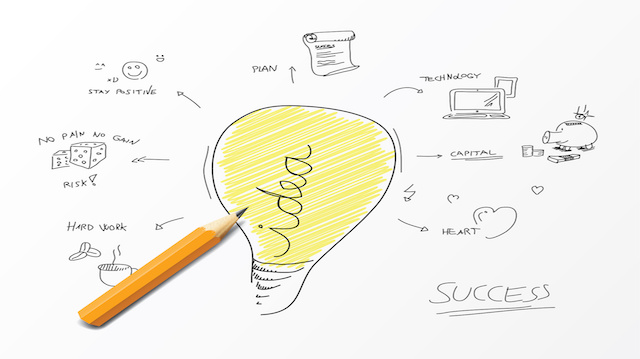
Give your work meaning
“I find out what the world needs. Then I go ahead and try to invent it.”
Once you focus on something you love, assign meaning to the work you do. Edison and his team took great pride in their work, which is what pushed them to achieve higher productivity and perseverance. A great deal of “meaning” goes hand-in-hand with innovation — push the envelope. When you find meaning in what you do, happiness and success will follow.
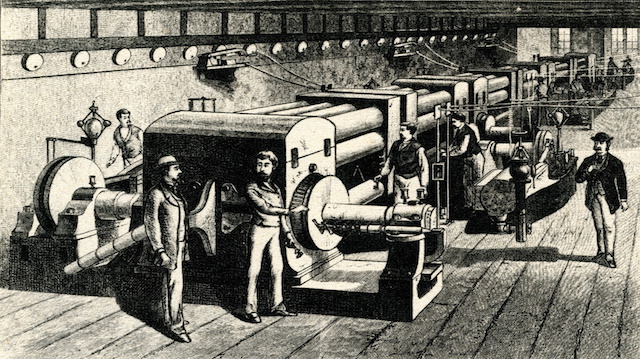
With quantity comes quality
“To have a great idea, have a lot of them.”
Edison was an inventor, so naturally he loved to experiment and generate plenty of fresh ideas. For him, out of quantity came quality. He aimed to achieve one minor invention every 10 days, as well as a major invention every six months. You may not be an inventor, but you can most certainly apply this approach to your life — never stop developing ideas, they may lead to that “one” concept that truly makes it all worthwhile.

Enthusiasm allows you to challenge assumptions
“When you have exhausted all possibilities, remember this — you haven’t.”
Edison was not a highly educated man, and he considered that a blessing. Unlike many of his colleagues who had doctorates in engineering or science, he approached his work a little differently. With fewer assumptions, he set fewer limits, tackling any new idea with great enthusiasm. He believed that too much education can cripple the way in which people view all possibilities.
Edison would use unconventional materials or methods, essentially thinking outside the box. In fact, before hiring someone, he would have them over for soup. If the individual seasoned their soup before tasting it, he wouldn’t hire them — they already held too many assumptions about the world around them.

Work hard, but work smart
“Being busy does not always mean real work.”
Life is chaotic and sometimes we wonder if we’re focusing on the right things. Just because you’re busy, does not mean that you’re bringing any real benefit to yourself or others. When you work, work to achieve and accomplish, not to fill your time. Working hard is important, but working smart is even more critical.
Edison worked long hours, but those hours were never wasted — he worked in order to achieve. If you plan, have the right systems in place, and maintain high levels of motivation, you can do incredible things. Working both hard and smart leads to true success.
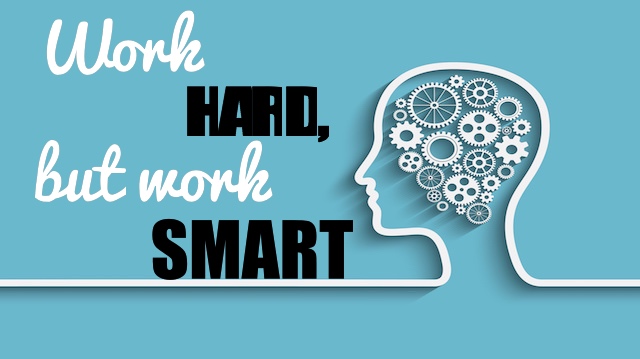
All of these lessons can be implemented into your life, regardless of what you do. We all have the ability to achieve great things — be more productive and find meaning in what you do, as happiness will surely follow.
—Krista Hillis
Krista Hillis is passionate about nutrition, mental health, and sustainable practices. She has her Bachelors in Psychology and Neuroscience and is still active in her research. Studying both the body and mind, she focuses on natural health and balance. Krista enjoys writing based on her ability to inspire others and increase overall awareness.
Sources:
http://www.inc.com/zoe-henry/google-uber-and-other-companies-where-you-can-nap-at-the-office.html
http://miscmagazine.com/lessons-from-edison
http://thinkjarcollective.com/tools/thomas-edisons-creative-thinking-habits
https://www.hourstimetracking.com/blog/2015/08/18/10-things-you-can-learn-from-thomas-edison-about-productivity

